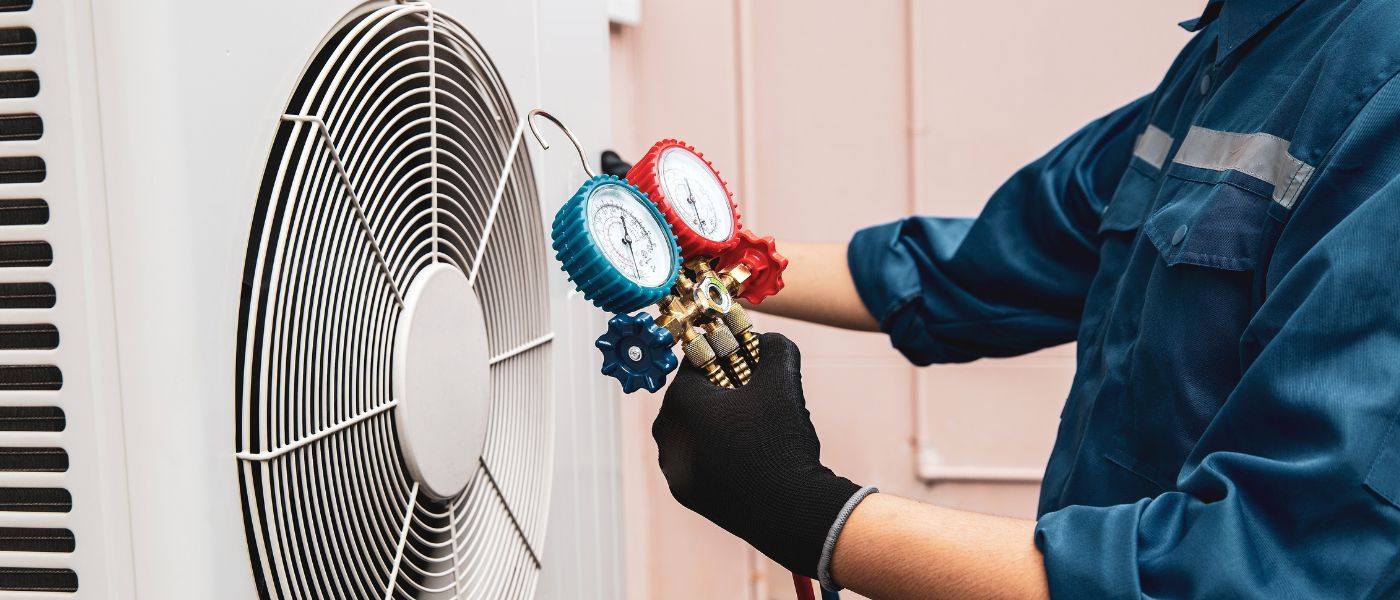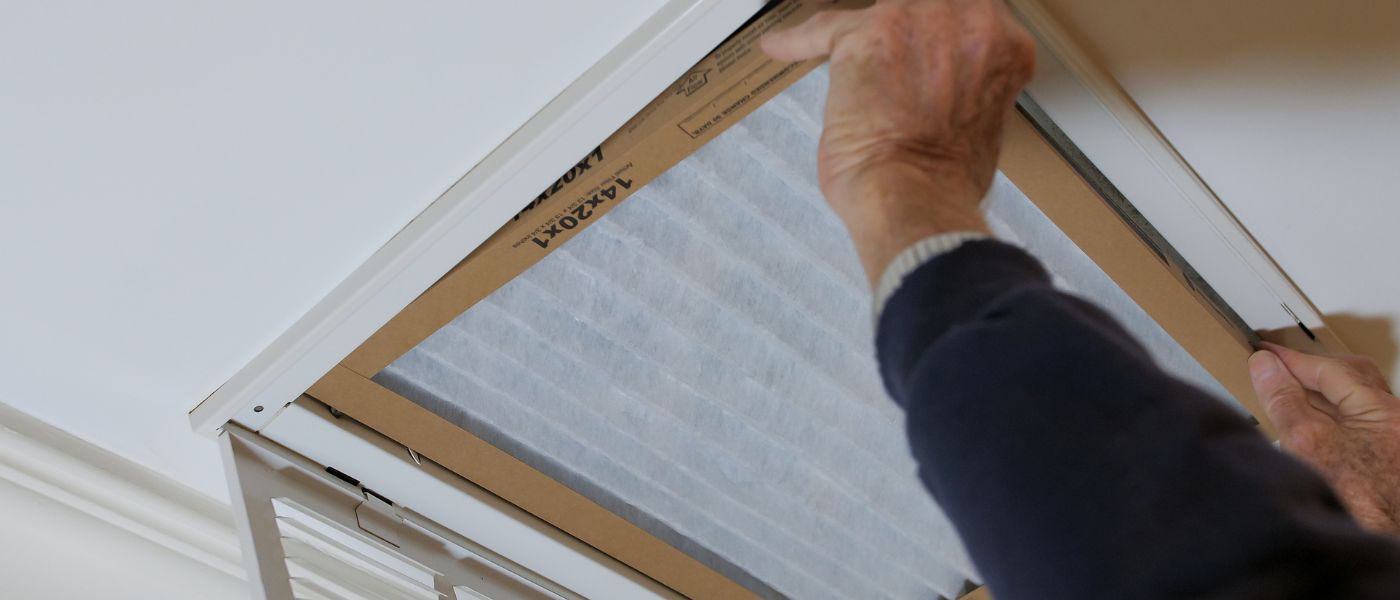How often do you think about your HVAC filters? If you’re like most homeowners, it’s probably not often enough! Yet, neglecting regular filter replacement can lead to a cascade of issues, including poor air quality and skyrocketing energy costs. This article will dive into the significant benefits of routine HVAC filter replacements.
What Does An HVAC Filter Do?
An HVAC filter is an essential component of your heating, ventilation, and air conditioning system that helps maintain clean and healthy air indoors. It works by trapping dust, pollen, pet dander, and other airborne particles before they can circulate throughout your home.
By filtering out these contaminants, the HVAC filter improves indoor air quality, making it easier for you and your family to breathe comfortably. These contaminants can exacerbate allergies, asthma, and other respiratory conditions, making it crucial to have a high-quality filter in place.
Additionally, a clean HVAC filter can enhance the efficiency of your heating and cooling system, allowing it to operate more effectively and potentially reducing energy costs.
Improves HVAC System Efficiency
Regular HVAC filter replacement is crucial for maintaining a comfortable and healthy home. When filters are clogged, they restrict airflow, forcing your HVAC system to work harder. This not only leads to higher energy bills but also shortens the lifespan of your equipment.

By routinely changing filters, you improve HVAC system efficiency, allowing it to operate smoothly and effectively.
These contaminants are known to affect HVAC performance and can lead to a range of issues, including poor indoor air quality. Dust, pollen, pet dander, and mold spores can accumulate in dirty filters, circulating through your home and potentially triggering allergies or respiratory problems.
Regularly replacing your HVAC filters helps to minimize these pollutants, ensuring that the air you breathe is cleaner and healthier. If unsure, you can always call an HVAC professional about your HVAC filter replacement requirements.
Signs You Need an HVAC Filter Replacement
One of the first signs you need an HVAC filter replacement is reduced airflow. If you notice that your heating or cooling system isn’t pushing air as strongly as it used to, a clogged filter could be the culprit.
Dust and debris can accumulate over time, blocking the air pathways and forcing your system to work harder. This not only affects comfort but can also lead to higher energy bills.
Another telltale sign is an increase in allergy symptoms or dust accumulation in your home. A dirty filter struggles to trap allergens and particles, allowing them to circulate freely in the air.
If you find yourself sneezing more often or seeing dust settle on surfaces faster than usual, it might be time for an HVAC filter replacement. Keeping an eye on these indicators can help maintain both your indoor air quality and the efficiency of your system.
Provides Consistent Temperature Control
Regular HVAC filter replacement is more than just an HVAC maintenance task; it’s a key component in ensuring your home stays comfortable. When filters are clean, your system can operate efficiently, providing consistent temperature control throughout your living space.
This means fewer hot or cold spots, making your home feel more inviting and cozy all year round.

You can test for poor air circulation by observing the airflow from your vents. If you notice that some rooms are significantly warmer or cooler than others, or if the airflow feels weak, it could indicate that your HVAC filters are clogged and need replacing.
Additionally, check for any dust buildup around the vents or on furniture, as this can be a sign of poor air quality caused by ineffective filtration.
Decreases Carbon Footprint with Efficient Systems
Regular HVAC filter replacement is not just about maintaining comfort; it’s a vital step towards a healthier living environment. When filters are clogged, your system has to work harder, consuming more energy and driving up utility bills.
A well-maintained system not only cools or heats your home more effectively but also decreases your carbon footprint with efficient systems. Investing a little time and effort in regular filter changes ultimately benefits your wallet and the planet, making it a smart choice for eco-conscious homeowners.
This helps with California’s ongoing efforts to promote sustainability and reduce energy consumption statewide. By ensuring that HVAC systems operate at peak efficiency, residents can contribute to California’s ambitious climate goals, which aim to cut greenhouse gas emissions and promote cleaner air quality.
Frequently Asked Questions (FAQ)
Most HVAC professionals recommend replacing your HVAC filter every 1–3 months, depending on the type of filter, whether you have pets, allergy concerns, and how often you run your system. Homes with pets or allergy sufferers may benefit from more frequent filter changes.
Common signs that your HVAC filter needs to be replaced include reduced airflow from vents, uneven temperatures between rooms, increased allergy symptoms, or visible dust buildup around vents and in your home. These issues often indicate a clogged filter that’s restricting proper airflow.
Yes. A dirty, clogged HVAC filter restricts airflow and forces your system to work harder to heat or cool your home. This extra strain causes your HVAC system to use more energy, which can lead to noticeably higher utility bills over time.
Absolutely. A clean HVAC filter is designed to trap airborne particles such as dust, pollen, pet dander, and mold spores, preventing them from circulating throughout your home. Regularly replacing your filter helps improve indoor air quality and creates a healthier environment for you and your family.
Yes. Regular HVAC filter replacement reduces strain on your system by allowing air to flow freely, which helps prevent overheating and unnecessary wear on components. Over time, this simple maintenance step can support better performance and extend the overall lifespan of your HVAC system.
